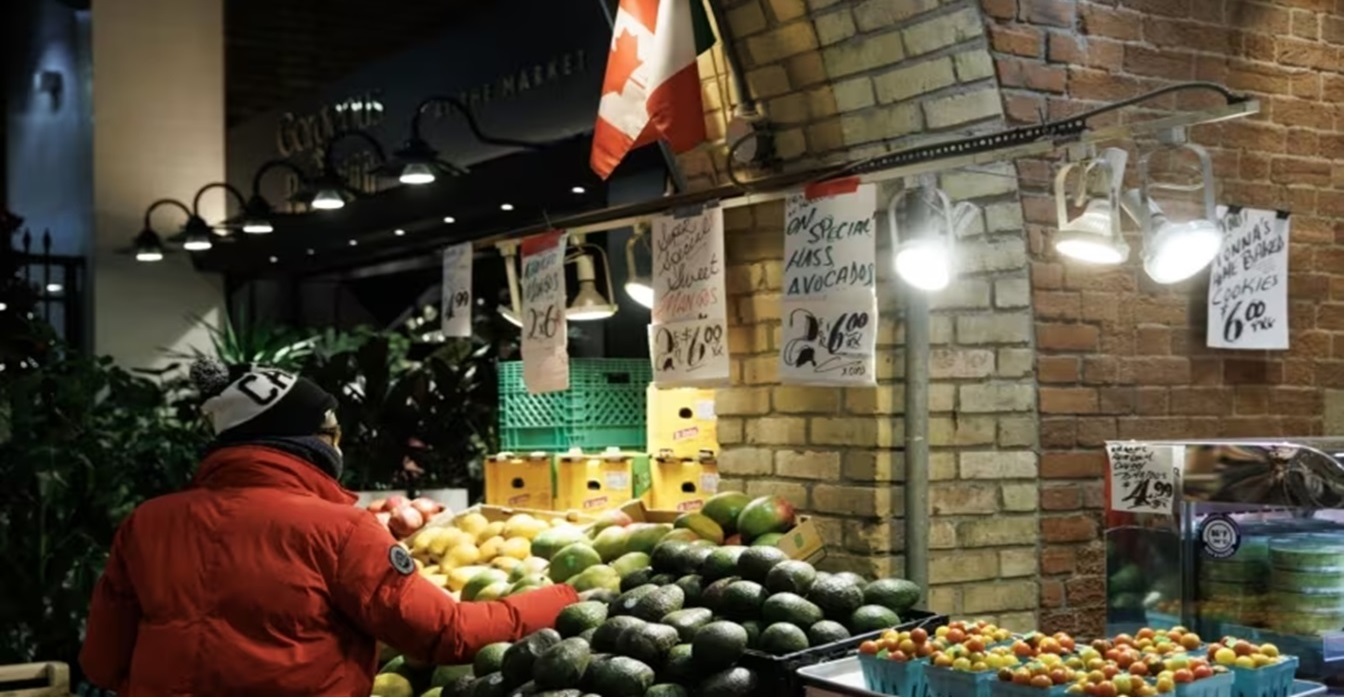
Amidst deals in prepackaged items, anticipate a rise in fresh produce costs next year, as per a widely observed annual report on food inflation. (Photo: Cole Burston/Bloomberg)
A widely observed annual report on food prices anticipates a surge in the yearly cost for a family of four, with projections exceeding $16,000. Despite a potential drop in prices for some essential items, the overall grocery bill for the typical Canadian family is estimated to climb by approximately $700 in the coming year.
Released by Dalhousie University, University of Guelph, University of British Columbia, and University of Saskatchewan, the 14th edition of the report accurately foresaw a five to seven percent increase in food prices for 2023, as corroborated by Statistics Canada data indicating a 5.9 percent rise in the food component of the consumer price index over the past year.The report focuses on calculating the annual expenses for a healthy grocery basket catering to a family of four – comprising an adult man and woman, a teenage boy, and a preteen girl. Last year's forecast by lead researcher Sylvain Charlebois envisioned a $1,065 rise in the typical family's 2023 food expenditure, reaching $16,288.40. However, actual spending totaled $15,595.40, indicating a $693 reduction due to altered shopping habits amid higher food prices.
A Chart of Expected Grocery Payscale
Looking ahead to 2024, Charlebois expresses optimism, anticipating a more modest increase in prices. While staples like produce, meat, and baked goods may see notable hikes, there's potential for bargains in the middle aisles, primarily stocked by multinational conglomerates. These sections, controlled by companies such as Nestle, Tyson Foods, PepsiCo, and others, could offer relief as the worst impacts of inflation-related factors subside.
Dry goods and non-perishables, governed by more stable cost structures, might present opportunities for cost-conscious consumers. Charlebois emphasizes the positive trend for consumer packaged goods companies, foreseeing potential bargains as they secure better prices for ingredients in the coming months.
While the forecast suggests a more favorable year for certain grocery items, challenges persist. Meat prices are projected to increase by five to seven percent, and vegetables, affected by a weaker dollar, may become more expensive. Dairy and fruit costs are estimated to rise by one to three percent, while seafood could see a three to five percent hike. Baked goods, having increased by eight percent last year, are expected to undergo the highest surge in 2024, ranging from five to seven percent.
Despite easing inflation in some sectors, unexpected events such as geopolitical conflicts or climate-related incidents in major food-producing regions could disrupt projections. Climate change, in particular, remains an unpredictable factor.
While the prospect of reduced inflation is welcomed, it may offer limited relief in the ongoing cost of living crisis. Shoppers, like Joanna Galineas in Toronto, express the challenges of budgeting for groceries, resorting to downgrades in meat cuts and essentials due to escalating costs. The evolving dynamics in the grocery landscape emphasize the need for consumers to navigate both price fluctuations and changing consumption patterns.















